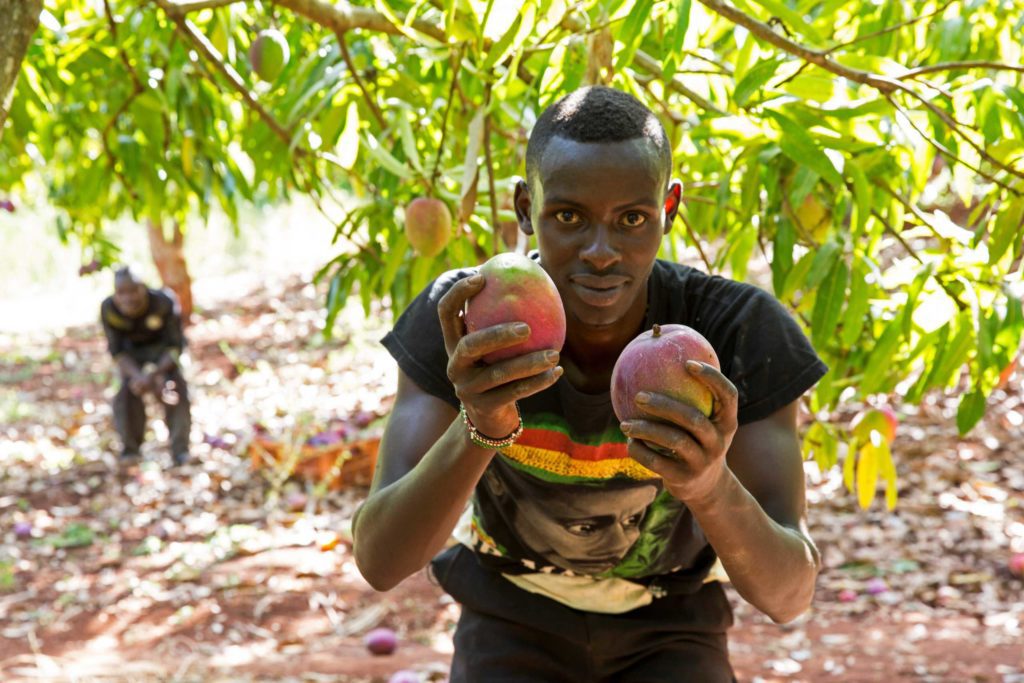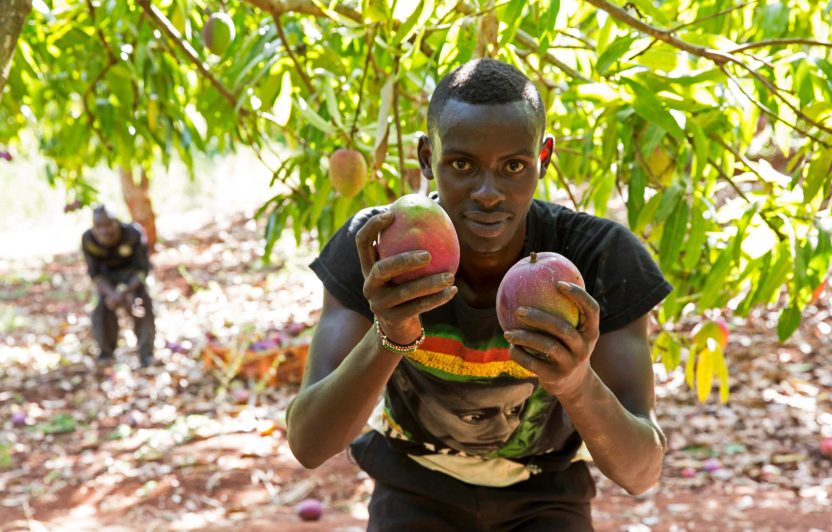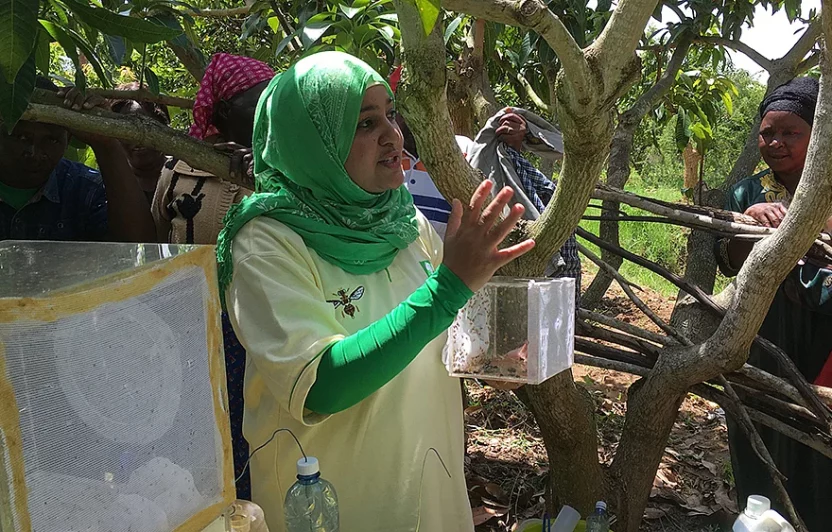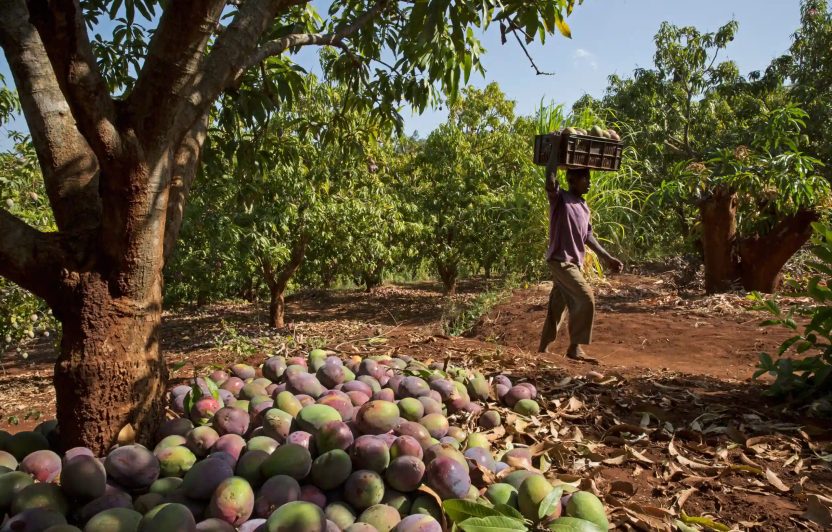
Mr Gichovi had been spraying large amounts of chemical pesticides but in the end, they too failed to work. He then discovered that you could control the fruit flies with traps and odour bait. In reality, this was just one of a range of measures in a system called “Integrated Pest Management” (IPM). As part of the IPM method, parasitic wasps are released, and they attack the larvae and decimate the population. The fruit that falls to the ground is collected on a regular basis and placed in special mesh tents; the fruit flies and larvae remain trapped in the tents whereas the smaller parasitic wasps are able to escape and continue to torment the young flies. Odour traps are also used to attract the male flies and farmers spot spray the trees with biopesticides. Finally, fungal spores are used to kill off the larvae in the soil.
“Integrated Pest Management” in practice
James Gichovi initially experimented on his own and achieved some success with plastic buckets and odour bait. His final breakthrough came at an IPM Field Day run by icipe* and Biovision. Nowadays, James has the fruit fly under control and is able to protect his mangoes in a sustainable way. However, he is not totally satisfied and remains concerned: “The training was too short and the groups were too large,” laments James. Many of the participants would have failed to understand everything and that is a shame. “In order to keep the mango fruit flies in check permanently, every farmer should use the IPM method diligently and consistently. I will only stop worrying when we are doing that”. It is a good thing, therefore that Biovision and icipe are continuing with the Fruit Fly Control project.
* icipe: International Centre of Insect Physiology and Ecology



